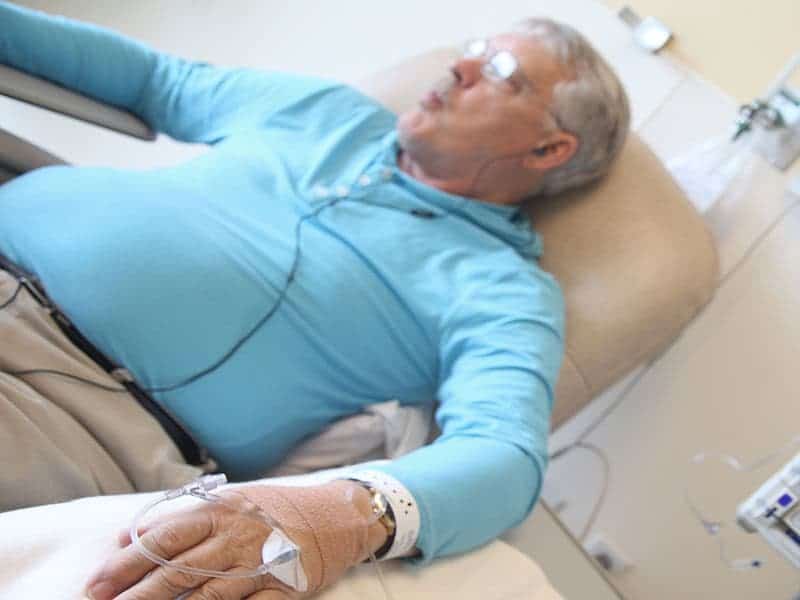THURSDAY, June 20, 2019 (HealthDay News) — A substantial proportion of older patients with high-risk acute myeloid leukemia (AML) treated with chemotherapy are long-term survivors, according to research published online June 7 in Cancer Medicine.
Sarah Bertoli, M.D., Ph.D., from the Centre Hospitalier Universitaire de Toulouse in France, and colleagues conducted a retrospective analysis to assess the characteristics and outcome of patients aged 60 to 75 years with secondary or therapy-related AML. A total of 218 patients fulfilled the liposomal encapsulation of cytarabine and daunorubicin (CPX-351) study criteria; of these, 83 percent received antileukemic treatment with intensive chemotherapy (121 patients) or hypomethylating agents (HMA; 60 patients).
The researchers found that the complete response rate was 69 percent for chemotherapy-treated patients and median overall survival was 11 months. Three- and five-year overall survival rates were 21 and 17 percent, respectively. The complete response rate was 15 percent for HMA-treated patients, while median overall survival was 11 months; the three- and five-year overall survival rates were 15 and 2 percent, respectively.
“These results compare favorably with the control chemotherapy arm of the CPX-351 trial which consisted of three daily doses of daunorubicin 60 mg/m² and seven daily doses of cytarabine 100 mg/m²,” the authors write. “This schema is considered as the standard of care according to current guidelines.”
Several authors disclosed financial ties to the pharmaceutical industry.
Copyright © 2019 HealthDay. All rights reserved.



